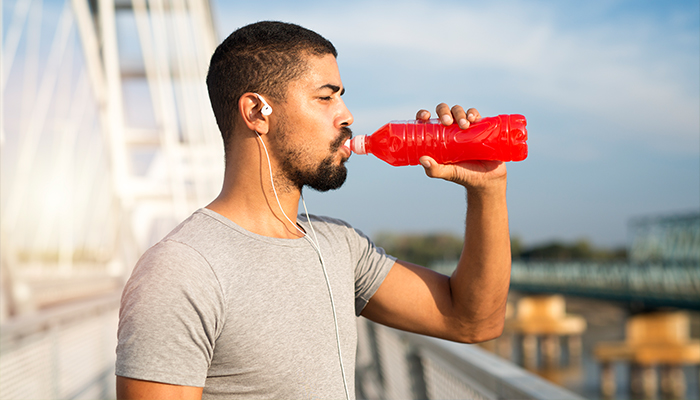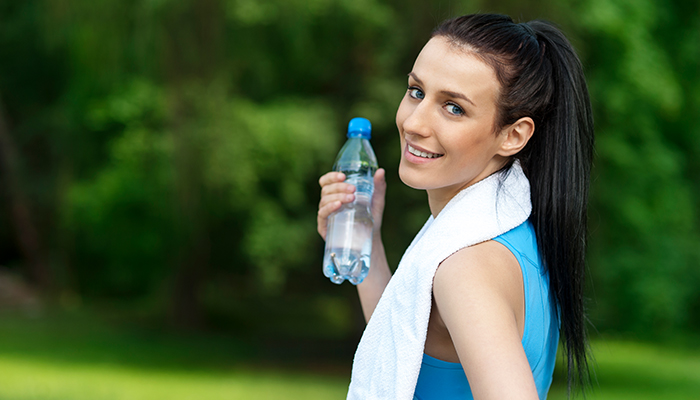Table of Contents
- Myth 1: Carbonation Hinders Exercise Performance
- Myth 2: Sparkling Water Always Causes Bloating
- Myth 3: Carbonated Drinks Lead to Dehydration
- Myth 4: Soda Before a Workout Is a Big No
- Myth 5: Carbonated Drinks Affect Muscle Recovery
- Myth 6: Fizzy Drinks Slow Down Digestion
- Myth 7: Carbonation Causes Cramps During Workouts
- Myth 8: Effervescent Drinks Are Always Bad Pre-Workout
- Sparkling Water: Benefits and Drawbacks
- Fizzy Hydration Tips for Fitness Enthusiasts
- Final Thoughts: Don’t Let Carbonation Myths Hold You Back
In the fitness world, there are plenty of opinions about what helps or harms performance. One topic that often comes up in carbonation is those fizzy bubbles in soft drinks, sparkling water, and other carbonated drinks. While many people enjoy them, some believe that carbonated drinks can hurt your workout. But how true is that? Are these concerns based on science or just myths passed around the gym?
Let’s break down the biggest carbonation workout myths and explore how fizzy drinks really affect your performance, hydration, and recovery.
Myth 1: Carbonation Hinders Exercise Performance
Many gym-goers believe that carbonation hinders exercise. The idea is that the bubbles can make you feel bloated and full, which might affect your ability to move freely. While it’s true that some people feel discomfort from fizzy drinks, the impact varies from person to person.
What Science Says
Studies haven’t shown that carbonation directly reduces physical performance. When looking at sparkling water and performance, most findings suggest that it’s more about personal tolerance than actual harm. Unless you’re large amount of fizzy drinks right before a workout, carbonation on its own doesn’t block your ability to exercise.
This brings us to the next point: Does carbonation hinder exercise because of bloating or discomfort?
Myth 2: Sparkling Water Always Causes Bloating
It’s easy to assume that drinking sparkling water leads to bloating, especially when you’re moving or lifting weights. However, this isn’t a rule for everyone.
Bloating depends on Quantity and Timing
Drinking a small amount of sparkling water before a workout is unlikely to cause serious issues. Sparkling water causes bloating when consumed in large amounts or quickly. For most people, sipping a bit before exercise or using it as a refreshment during the day won’t cause major problems.
So, while fizzy drinks can cause discomfort in sensitive individuals, this doesn’t mean they always negatively impact exercise. It’s all about knowing your body.
Myth 3: Carbonated Drinks Lead to Dehydration

One common belief is that carbonated drinks, especially soda, lead to dehydration. This belief fuels the idea that one should never have fizzy dinks before or after a workout.
Carbonation and Hydration: Clearing the Confusion
The truth is, carbonated water still hydrates you. It contains water and can contribute to your daily fluid intake. The issue arises with sugary sodas or those containing caffeine. These ingredients might have a mild diuretic effect, but they don’t cancel out the hydration you get from the drink itself.
So when it comes to fizzy hydration tips, the key is to choose low-sugar or sugar-free options, like sparkling water, instead of full-sugar sodas.
Myth 4: Soda Before a Workout Is a Big No
“Soda before workout? Never!” —that’s something you’ll often hear at the gym. But is drinking a soda before your workout really that bad?
A Closer Look at Pre-Workout Beverages
The problem isn’t carbonation—it’s what comes with it. Soda usually contains high levels of sugar and sometimes caffeine. The sugar can cause a short energy spike, followed by a crash, leaving you tired during your session. Meanwhile, caffeine might help with focus and performance, but not everyone reacts well to it, especially on an empty stomach.
So the issue with soda before the workout isn’t carbonation—it’s the ingredients. If you like bubbles, opt for sparkling water with electrolytes or a low-sugar fizzy drink instead.
Myth 5: Carbonated Drinks Affect Muscle Recovery

Some people believe that drinking carbonated drinks after exercise slows muscle recovery.
Let’s explore if there’s any truth to this.
Carbonation and Muscle Recovery: What’s the Link?
There is no scientific proof that carbonation affects your body’s ability to recover after a workout. What’s more important is what the drink contains. Your body needs fluids, electrolytes, and nutrients after exercise. If your carbonated drink contains these, it can support recovery.
However, sugary soft drinks with no nutritional value won’t help much. When thinking about carbonated drinks and fitness, always look at the whole picture, not just the bubbles.
Myth 6: Fizzy Drinks Slow Down Digestion
Another common concern is carbonation digestion issues. Some worry that fizzy drinks make digestion sluggish, which could affect energy levels during a workout.
Fizzy Drinks and Your Gut
While carbonation can cause burping or a feeling of fullness, it doesn’t block digestion for most people. In fact, some studies show that carbonated water may help with indigestion or an upset stomach.
If you’re sensitive to gas or have a history of digestive issues, you might prefer still drinks. But for most people, carbonated drinks in moderation have no serious digestive side effects.
Myth 7: Carbonation Causes Cramps During Workouts

One more belief in the world of fizzy drinks and exercise impact is that carbonation leads to cramps. This fear stops people from drinking anything fizzy before or after physical activity.
Examining Carbonation and Cramps
Cramps are usually caused by dehydration, overuse of muscles, or lack of electrolytes, not carbonation. If your drink hydrates you and has the right nutrients, there’s no reason to fear the bubbles.
Still, if you often get cramps and suspect your drink might be part of the problem, try switching to still water and monitor the difference.
Myth 8: Effervescent Drinks Are Always Bad Pre-Workout
Not all drinks are created equal. Some people avoid all types of effervescent drinks before exercise, thinking they harm performance.
Effervescent Drinks Performance Benefits
There are actually specially designed fizzy pre-workout drinks that contain electrolytes, B vitamins, or caffeine. These can boost energy and mental focus. If your body handles carbonation well, these drinks can support your workout rather than hurt it.
So the idea that all fizzy drinks are bad before exercise is just another pre-workout beverage myth that doesn’t hold up under scrutiny.
Sparkling Water: Benefits and Drawbacks
Now that we’ve tackled the myths, let’s look at the real pros and cons of sparkling water when it comes to fitness.
Benefits
- Keeps you hydrated.
- It can be more enjoyable than plain water.
- Helps reduce cravings for sugary drinks.
- May improve digestion for some people.
Drawbacks
- May cause bloating or gas in sensitive individuals.
- Might lead to overconsumption of flavoured options with sweeteners.
- Not ideal for everyone during intense physical activity.
It all comes down to your body’s response and your drink of choice. Sparkling water and performance can go hand in hand if managed correctly.
Fizzy Hydration Tips for Fitness Enthusiasts

If you enjoy carbonated drinks but want to avoid discomfort during exercise, here are some fizzy hydration tips to keep in mind:
- Sick to plain sparkling water before workouts to avoid sugar crashes.
- Drink in moderation, especially right before heavy exercise.
- Try different timings some do better sipping fizzy drinks after their workout instead of before.
- Avoid high-sugar fizzy drinks if you're trying to stay energised and hydrated.
- Watch for personal signs if carbonation gives you cramps or gas, switch to still fluids around workout time.
By making mindful choices, you can enjoy fizzy drinks and still hit your fitness goals.
Final Thoughts: Don’t Let Carbonation Myths Hold You Back
The truth is, most concerns about carbonation and exercise are based on outdated ideas or personal anecdotes rather than science. When used wisely, carbonated drinks—especially sparkling water—can be part of a healthy fitness routine. Whether it's about hydration, performance, or recovery, what matters most is how your body responds.
So the next time someone says, “Carbonation hinders exercise,” you’ll know the facts. Fizzy doesn’t mean faulty. Choose wisely, listen to your body, and don’t let carbonation workout myths stand in your way.

Does sparkling water affect my gym performance?
For most people, no. Sparkling water and performance can go well together unless you're very sensitive to bloating or gas.
Is soda before a workout a bad idea?
Yes, mainly due to the sugar content, not the carbonation. A high-sugar soda can cause energy crashes mid-workout.
Can I drink fizzy water after exercising?
Absolutely. Just make sure it’s not packed with sugar or artificial additives. Carbonation and muscle recovery are not directly linked negatively.
Does carbonation cause dehydration?
No. Carbonated drinks hydrate just like still water—unless they contain high levels of caffeine or sugar, which can slightly reduce hydration efficiency.


